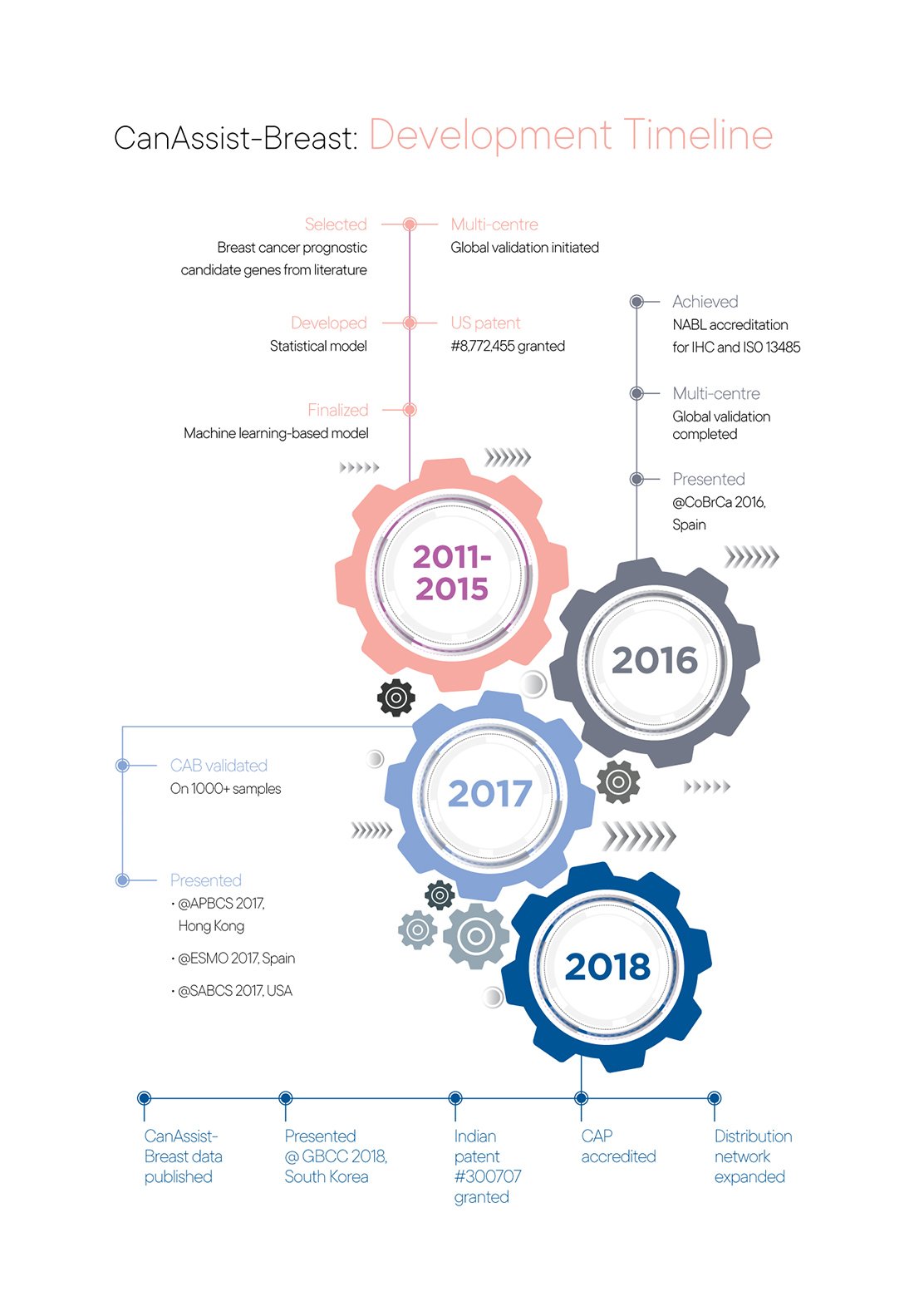Development of CanAssist Breast
OncoStem Diagnostics has developed an immunohistochemistry(IHC)-based novel
risk classifier called CanAssist Breast which combines five prognostically relevant biomarkers and three clinicopathological parameters to arrive at the probability of distant recurrence within five years from diagnosis.
CanAssist Breast is a first of its kind IHC-based prognostic test developed using machine learning-based techniques.
These machine learning techniques allow assessment of non-linear interactions between biomarkers, which is critical given crosstalk between signaling pathways in cancer.
The CanAssist Breast algorithm produces a risk score ranging from 0-100. A cut-off of 15.5 is applied to stratify patients into either low-risk (score ≤15.5) or high-risk (score >15.5).
Analytical Validation
CanAssist Breast has undergone rigorous validation to demonstrate the precision of
the test. The validation strategy was adopted from various international guidelines to
assess the impact of multiple variables like operator, observer, run, etc.
All IHC protocols used in CanAssist Breast testing are extensively validated and
involve stringent QC.
Subjectivity attributable to IHC scoring was evaluated and found to be minimal
among OncoStem’s panel of experienced pathologists.
CanAssist Breast is performed at the reference laboratory in
Bangalore, India which is accredited by the College of American Pathologists (CAP)
and ISO 13485 certified.
Clinical Validation
CanAssist Breast has been validated in a retrospective multi-centric clinical study
(10+ centers), involving a cohort of close to 1000 patients (85% Asian and 15%
Caucasian).
Approximately 40% of the validation cohort was aged 50 or younger, and 66% were
Stage II patients, representative of Indian breast cancer patients who tend to be
younger and diagnosed with more advanced disease than their Western
counterparts.

Low-risk patients were found to be unlikely to benefit from chemotherapy whereas
high-risk patients who received chemotherapy appeared to have significantly
improved outcomes.
Proportional hazards regression shows CanAssist Breast provides significant
prognostic value, superior to that provided by traditional clinicopathological
parameters and tests such as Ki67 and IHC4.
